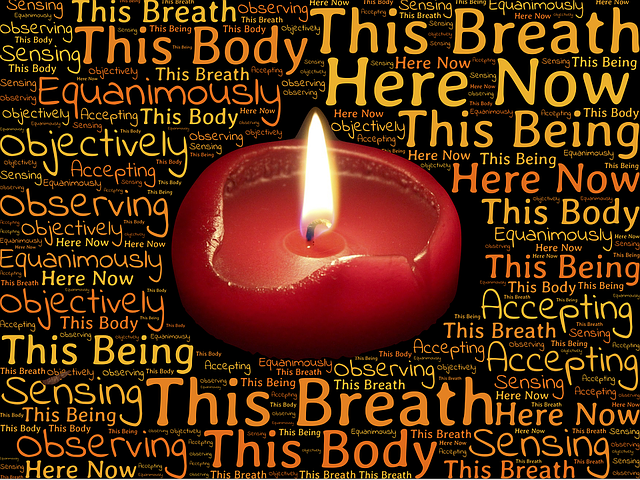Susan Sontag, in her book Illness as Metaphor, reminds us that we have dual citizenship – “in the kingdom of the well and in the kingdom of the sick”. At some point in our life we move from one to the other “even for a spell”. For chronic illness suffers this can be a very long spell which is part of the inherent challenge of chronic illness.
When Susan wrote about illness she was suffering from breast cancer at the time and took issue with the metaphors and myths that surrounded this form of illness. Myths include the idea that illness is “a punishment for moral degradation”. In her view, such myths only added to the burden of illness and failed to create space for healing. Susan also took exception to military metaphors such as “battle”,” war” and “survival” used to describe illness from cancer. She suggested that these metaphors negatively affect patient’s physical and mental wellbeing as they induce fear, guilt, and a sense of isolation – factors along with the illness itself contributing to overwhelm.
Susan was concerned that inaccurate myths and inappropriate metaphors induced a sense of helplessness, detracted from the biological nature of Illness and ignored the scientific evidence that many illnesses are curable through breakthroughs in modern medicine.
Finding agency in the space between
In a previous post, I discussed ways to develop agency in the space between illness and wellness (however temporary). This included strategies for exercising agency as a writer, employing education and research and exploring options in our recreational and/or artistic endeavours. I gave the illustration of Lucy and her exercise of creative agency through piano playing despite being totally blind and experiencing multiple mental health issues including autism.
Fighting misinformation to overcome overwhelm
Mal Uchida, writing for Havard Medicine, recounts her experience of having the COVID-19 vaccination while pregnant. She was publicly attacked in social media and received multiple forms of hate mail for her stand for the health of her unborn child. While expressing empathy for people who held the contrary view about the efficacy of the vaccination, she continued to advocate for its potential health benefits. Being both a mother and a child psychologist, she was able to empathise with parents who were making the really difficult decisions associated with raising children.
Mal attempted to counter misinformation and associated overwhelm and fear by sharing her own struggles, discussing relevant scientific information and enlisting the aid of the media and Japanese Government to communicate her message. She acknowledged the dilemma for parents, expressed empathy and compassion and sought to provide accurate, up-to-date information.
Strategies for managing overwhelm during life transitions
There are many transitions that we experience in life – including from childhood to adulthood, from wellness to illness, from a current job to a new job, from marriage to divorce, from loss to gain, from working to retirement. Mindfulness can help us to effectively overcome the overwhelm involved in the transitions in our life. For example, Dr. Shalini Bahl, author of Return to Mindfulness, offers an 8-week online course titled, From Overwhelm to Clarity: Mindfulness Skills for Breaking Free and Living Fully. This course involves a supportive community and offers mindfulness micro-practices designed to develop awareness, compassion, inner calm, joy, energy and equanimity.
Storytelling can help us to unearth our manufactured “life story” – that often involves “negative self-stories” that undermine us and create overwhelm. An integral part of storytelling is a supportive community that enables us to be truly honest with ourselves by providing “supportive challenge” – questioning our assumptions about ourselves and others while offering support to be the best person that we can be.
Reframing can help us cope better with life’s transitions such as aging or menopause. It involves changing our “negative narrative” and exploring the opportunities provided by “a different stage of life”. Marianne Cronin in her novel, The One hundred Years of Lenni and Margot, provides an example of reframing by Margot who is 83 years old and suffering from a terminal illness. Margot comments, when sharing stories, that at her stage of life she is “a childless mother, husbandless wife, a parentless daughter”. Instead of dwelling on the inherent losses involved in her stage of life she notes that “it was sad, but also freeing” because she was “no longer anybody’s” and was free to go anywhere and do anything she wanted. Margot ended up establishing a deeply personal relationship with17 year old Lenni through storytelling and the shared experience of a terminal illness.
Wintering – the process of letting light into the darkness in our life – can help us to identify the opportunities in the spaces between, e.g. between wellness and illness. We can let the light into our lives and the darkness of overwhelm through gratitude, intentional breathing, exploring nature and focusing on self-care through “rest and retreat”. Writing a reflective poem (as I did in my wintering blog post), can help us to reduce overwhelm and identify a way forward. It can even help us to see the “gift of illness”.
I have found that education and research have helped me to deal with the potential overwhelm of a chronic illness. I’ve been able to access resources about my MCAS condition through participation in global summits, reading expert articles and enrolling in a relevant, mindfulness-based course for tempering reactivity of the vagus nerve involved in MCAS. There are many free resources available online for specific illnesses, such as the Guide for Driving with Epilepsy that covers manifestations of epilepsy and essential considerations and safety tips when driving.
A meditation to overcome overwhelm
Mitra Manesh, meditation trainer with UCLA, offers one of their weekly meditations on the topic, Working with Overwhelm. In this guided meditation, Mitra discusses the causes of overwhelm in today’s fast-moving, complex global environment. Factors contributing to overwhelm include climate change, international wars and conflicts, economic uncertainty, rapid technological innovation and the changing global political environment.
She suggests that we can view overwhelm by envisaging a cup that represents a certain level of personal capacity to which we add information and visual overload, social media obsession, family and economic challenges, health issues and workplace friction and changes. The resultant overflow represents our overwhelm.
In her guided meditation Mitra encourages us to use visualisation and cultivation of options for moving forward. She suggests that we envisage walking through a gate to a large open space with grassy slopes, a water feature, trees and a fresh breeze. Taking deep breaths to imbibe the fresh clean air, we can begin to relax and feel supported within this visualised environment. The options for moving forward then include:
- accepting something within our current reality (that we are resisting or denying)
- letting go of a constraining mindset
- thinking about who or what might assist us to move forward
- focusing on something we can do now that is doable and important (“don’t look at the pile” that is the source of overwhelm – focus on one thing!).
We can return at any time to the envisaged, spacious landscape which provides “lots to choose from” and offers openness, support and potential wellness.
Reflection
When I participated in Mitra’s meditation on how to work with overwhelm it helped me to reduce overwhelm I was experiencing in a small area of my life, writing this particular blog post. We had just come out of the other side of a week-long cyclone and I was finding it difficult to focus on my writing. After doing the meditation I found that I could move forward by accepting the disruptive nature of recent events, changing my expectations and letting go of a framework for the article that was constraining rather than freeing me.
Simultaneously, I received an email from Shalini about her course, From Overwhelm to Clarity, and this gave me added incentive to adopt a new framework for the blog post around the concept of “overwhelm”. While writing this blog post represents a small area of my life, writer’s block had the effect of negatively impacting other areas of my life such as my ability to concentrate and focus on what I was doing.
Growing mindfulness through meditation, Tai Chi and micro-practices such as intentional breathing can help us to relax and rest, see a way forward, and adopt creative solutions to the disabling effects of overwhelm.
_______________________________________________
Image by Plutozoom from Pixabay
By Ron Passfield – Copyright (Creative Commons license, Attribution–Non Commercial–No Derivatives)
Disclosure: If you purchase a product through this site, I may earn a commission which will help to pay for the site, the associated Meetup group and the resources to support the blog.








